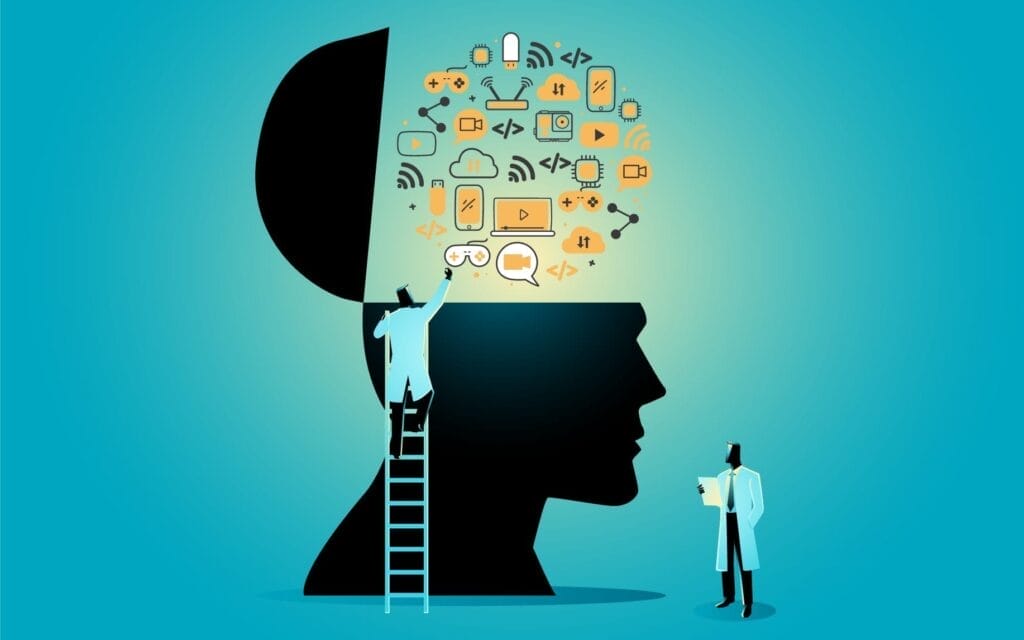Neuropsychological Disorders: Understanding the Impact on Cognition and Behavior
February 11, 2025 2025-02-07 11:02
Neuropsychological Disorders: Understanding the Impact on Cognition and Behavior
Neuropsychological disorders are conditions that affect a person’s cognitive, emotional, and behavioral functions, often caused by dysfunctions in the brain. These disorders can range from mild difficulties in cognitive processing to severe conditions that impact memory, attention, reasoning, and emotions. Understanding these disorders is crucial for providing appropriate treatment and improving the quality of life for affected individuals.
This article explores what neuropsychological disorders are, how they are diagnosed, common types, and therapeutic approaches available for treatment.
What Are Neuropsychological Disorders?
Neuropsychological disorders are conditions that arise when there is damage or dysfunction in the brain areas responsible for cognitive and emotional functions. These disorders can result from traumatic brain injuries, strokes, neurodegenerative diseases, infections, or even genetic disorders that affect brain development.
The human brain is responsible for a wide range of functions, including memory, language, reasoning, emotions, and motor control. Any disruption in these processes can lead to difficulties in behavior, cognition, or emotional regulation, which significantly affect daily life.
Common Types of Neuropsychological Disorders
- Dementia
- Dementia is a set of symptoms that affect memory, thinking, orientation, and behavior. Alzheimer’s disease is the most common form of dementia, but there are other types such as frontotemporal dementia and vascular dementia. Patients with dementia may experience significant loss of cognitive and functional abilities as the disease progresses.
- Stroke (Cerebrovascular Accident – CVA)
- A stroke occurs when the blood supply to part of the brain is interrupted, causing damage to areas responsible for speech, movement, and cognitive functions. Depending on the location and extent of the damage, stroke symptoms can include paralysis, memory loss, and difficulties with speaking or understanding language.
- Autism Spectrum Disorder (ASD)
- Autism is a developmental disorder that affects communication, social behavior, and interaction skills. People with ASD may show a wide range of symptoms, from mild difficulties to significant disabilities that affect their ability to interact socially and process information.
- Memory Disorders
- Memory disorders can be caused by various conditions, such as traumatic brain injury, aging, or neurodegenerative diseases like Alzheimer’s disease. Individuals with memory disorders may experience frequent forgetfulness, difficulty recalling past events, or trouble retaining new information.
- Attention and Impulse Control Disorders
- Neuropsychological disorders can also include problems with attention, impulse control, and self-regulation. Attention-deficit/hyperactivity disorder (ADHD) is one of the most common disorders in this category and can affect both children and adults, causing difficulty concentrating and controlling impulsive behaviors.
- Traumatic Brain Injury (TBI)
- Traumatic brain injuries, such as concussions, can occur due to accidents, falls, or blows to the head. Depending on the severity, these injuries can cause problems with cognitive functions, memory, motor control, and emotions. People who have experienced a traumatic brain injury may find it difficult to perform daily tasks and make decisions.
Diagnosing Neuropsychological Disorders
Diagnosing a neuropsychological disorder generally involves a combination of clinical interviews, neuropsychological tests, and medical evaluations. Healthcare professionals, such as neurologists, psychologists, and psychiatrists, use various tools to assess an individual’s cognitive and emotional functioning.
- Neuropsychological Assessment: These tests measure different areas of cognition, such as memory, attention, perception, reasoning, and language. The results of these assessments can help doctors identify the type of disorder and its severity.
- Brain Imaging: Techniques like magnetic resonance imaging (MRI) and computed tomography (CT) scans allow doctors to view the brain and detect any damage or abnormalities that may be causing the symptoms.
- Clinical Interviews: Doctors also conduct interviews with the patient and their family members to better understand the symptoms, medical history, and any underlying factors contributing to the disorder.
Treating Neuropsychological Disorders
The treatment for neuropsychological disorders depends on the underlying cause and severity of the symptoms. Generally, treatment focuses on improving cognitive and emotional functions, alleviating symptoms, and improving the patient’s quality of life.
- Cognitive Behavioral Therapy (CBT)
- CBT is a type of psychotherapy that helps individuals change thought and behavior patterns that affect their emotional well-being. This therapy can be helpful for disorders such as ADHD, depression, and anxiety by teaching strategies to manage symptoms and improve social and cognitive skills.
- Medications
- Medications may be prescribed to treat specific neuropsychological disorders. For example, acetylcholinesterase inhibitors are used to treat the symptoms of Alzheimer’s disease, while stimulant medications may be used for ADHD treatment.
- Occupational Therapy and Physical Therapy
- Occupational therapy and physical therapy are essential for people who have suffered traumatic brain injuries or strokes. These therapies help patients regain motor and cognitive skills, improving their ability to perform daily activities.
- Cognitive Rehabilitation
- Cognitive rehabilitation involves using exercises and activities designed to improve affected brain functions. Cognitive rehabilitation programs can be helpful for patients with brain damage, neurodegenerative diseases, and memory disorders.
- Psychosocial Support
- Emotional and psychosocial support is critical for individuals with neuropsychological disorders and their families. Support groups and counseling services provide a safe space to share experiences, learn coping strategies, and receive guidance.
The Future of Neuropsychological Disorders
Research in neuropsychology is constantly evolving, and advancements in brain understanding are leading to new treatments and approaches for neuropsychological disorders. Progress in neuroscience, artificial intelligence, and neurorehabilitation offer new perspectives on diagnosing, treating, and managing these disorders.
Conclusion
Neuropsychological disorders can have a significant impact on the lives of individuals and their families. It is essential to understand the different types of disorders, the diagnostic methods, and the treatment options available to provide adequate support. With the right treatment and early intervention, many individuals can lead fulfilling and meaningful lives, even with neuropsychological disorders.
Related Posts
Neuropsychological Disorders: Understanding the Impact on Cognition and Behavior
February 11, 2025 2025-02-07 11:02Popular Tags






























